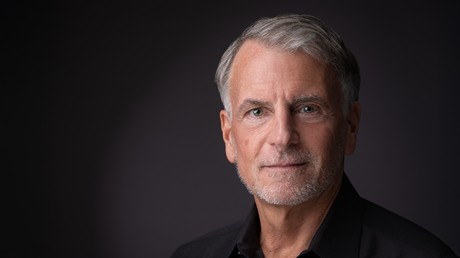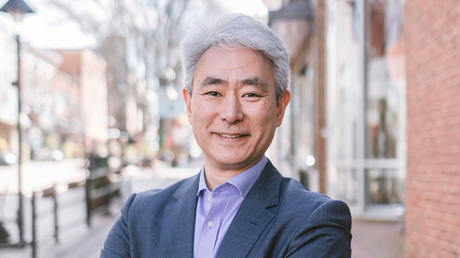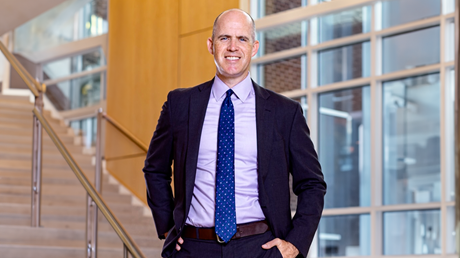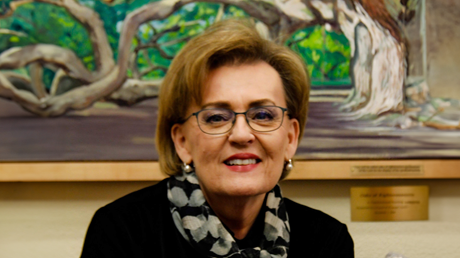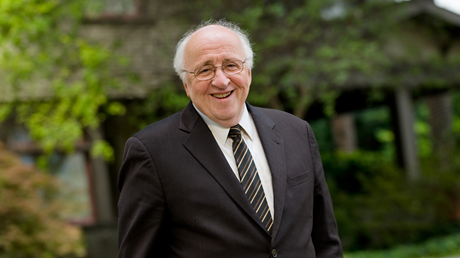
Will you help encourage and connect the church?
Give NowWill you help encourage and connect the church?
Give NowEric Miller, associate professor of history at Geneva College, first learned about Books & Culture magazine while a CT subscriber. The Books & Culture preview, featured in a 1995 CT issue, appeared in turquoise and black. The colors were significant, Miller recalls, because it was around the same time the similarly hued Jacksonville Jaguars and Carolina Panthers entered the NFL. "I've been a devotee ever since," Miller said in an email.
In moving past Books & Culture's outward appeal, Miller discovered, as others have, that the publication was unique. "Books & Culture honors the ideal of 'generous orthodoxy' in a way that moves far past the level of cliché," he said. "Its very form and style instantiate the Chestertonian vision of sanity: a beautiful union of parts that we all too easily allow to fracture and fragment. It embodies a winsome catholicity."
Looking back at his near 20-year relationship with Books & Culture, Miller highlighted some of his favorite aspects of the magazine as a reader, writer, and Christian.
What are some things you most appreciate about Books & Culture?
In featuring a wide range of topics addressed by writers both diverse in viewpoint and unified in spirit, Books & Culture pulls off a challenging feat. The ability to publish essays that are both specialized and accessible is an enormous gift to the Christian community. For example, Books & Culture featured an essay by the theologian Hans Boersma on the Eucharist. That opened up passageways I didn't know existed, leading me to places I'm very grateful to be. Absent a magazine willing to publish that kind of writing, it would be considerably less likely that a non-theologian like me would encounter such ideas. I can say the same about any number of other disciplines and fields: I came into contact with the powerful writing of the poet Christian Wiman through a Books & Culture interview, a very fruitful discovery.
I usually read with admiration and delight anything by Alan Jacobs. I always look forward to Timothy Larsen's essays, and am very glad that Books & Culture publishes the occasional essay by the historian Eugene McCarraher. Just the range of style and viewpoint represented by these three writers gives a great sense of what is possible at Books & Culture—and, I think, nowhere else.
What are your favorite or most significant pieces you've written for Books & Culture?
Over the years, I've been able to work out my thinking in very close ways on many critical issues and concerns. Books & Culture has provided the space for true reckoning and in the most frankly Christian way possible—a freedom not easy to find. I was able to deepen my thinking about the conservative political tradition through a review of Rod Dreher's book Crunch Cons. The question of America's cultural fragmentation was something I was able to gain a clearer comprehension of through writing a review of Daniel Rodgers's Age of Fracture. I came to an early but personally important reading of Wendell Berry in one of the first pieces I wrote, "Agrarian of the Worlds, Unite!," which was a report on a conference I attended in honor of one of Berry's books. Editor John Wilson has made possible a space for intellectually serious journalism at a level that is utterly essential for any tradition seeking to grow in depth and influence. For that, I am continually grateful.
In what ways has Books & Culture shaped your faith?
The demise of Books & Culture, which came perilously close to happening a year ago, would be a loss of truly consequential proportions for the American evangelical tradition. In my view, Books & Culture is worthy of the kind of support that should free it to do even better what it is doing so well now. Above all, Books & Culture reminds me what my faith is: what it means, how it might yet look. By taking me in and out of so many cultural spheres, geographical locations, and thematic concerns, it helps me to see and feel the reality of a triune God graciously giving us life, one who abides with us and who is working all things out for his high and holy ends. The scope and vision of the kingdom itself come clearly into view, issue by issue.


